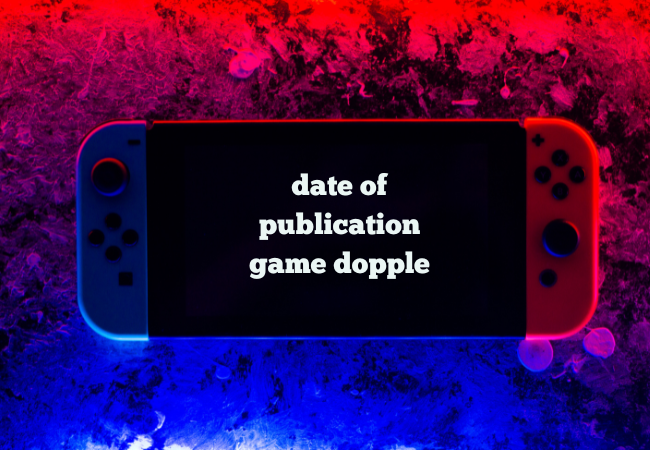When it comes to the gaming industry, few elements are as crucial as the publication date. But why is this single day so significant? Let’s dive deep into the concept of game publication dates and explore their importance, the factors influencing them, and the impact they have on the success or failure of a game.
What is a Game Publication Date?
Definition and Explanation
A game publication date is the officially scheduled release day when a video game becomes available to the public. This date is often set well in advance and is used as a major marketing tool.
Role in the Gaming Industry
Publication dates are more than just a day on the calendar; they represent the culmination of years of development, marketing efforts, and anticipation. They serve as a critical point in a game’s lifecycle, affecting everything from sales to player reception.
The Evolution of Game Publication Dates
Historical Context
In the early days of gaming, publication dates were relatively straightforward, often tied to physical production schedules. As the industry grew, the complexity of these dates evolved.
Changes Over the Years
With the advent of digital distribution, publication dates have become more flexible and strategic. Developers now have the option to release games globally on the same day, catering to a worldwide audience.
Factors Influencing Game Publication Dates
Development Cycles
The most significant factor is the development cycle. Games must be ready, bug-free, and polished to ensure a smooth release.
Marketing Strategies
Publication dates are often chosen to align with major marketing campaigns, ensuring maximum visibility and hype.
Competition
Timing a game’s release to avoid clashing with major titles from competitors can make a significant difference in its success.
The Impact of Publication Dates on Game Success
Timing and Sales
A well-timed release can lead to higher sales and better market penetration. For instance, releasing a game during the holiday season can boost sales due to increased consumer spending.
Community Anticipation
Building anticipation and meeting the community’s expectations can make or break a game. A delayed release can lead to disappointment, while an early release may not meet quality standards.
Case Studies of Successful Game Releases
Example 1: Major Hit Game
Consider a major AAA title that strategically chose a holiday release, capitalizing on the shopping frenzy and achieving record-breaking sales.
Example 2: Indie Success Story
An indie game that timed its release to avoid competition and leveraged strong community support for a successful launch.
The Downside of Poorly Timed Releases
Examples of Failures
Some games have flopped due to poorly timed releases, such as launching alongside a blockbuster title or releasing before they were ready.
Lessons Learned
These failures highlight the importance of strategic planning and understanding market dynamics.
The Role of Developers and Publishers
Decision-Making Process
Choosing a publication date involves extensive discussions and planning among developers, publishers, and marketing teams.
Coordination and Communication
Effective communication between all parties ensures that the chosen date is feasible and strategically sound.
The Gamer’s Perspective
Community Expectations
Gamers often have high expectations for anticipated releases. Meeting these expectations requires careful planning and transparency from developers.
Reaction to Delays and Early Releases
Delays can lead to frustration, but they are often necessary to ensure quality. Conversely, releasing a game too early can damage its reputation.
Technological Advances and Their Influence
Digital Distribution
Digital platforms have revolutionized how games are released, allowing for more flexible and simultaneous global launches.

Early Access Models
Early access has become a popular model, allowing players to engage with the game during development and providing valuable feedback.
The Future of Game Publication Dates
Predicting Trends
The future will likely see more dynamic and responsive publication strategies, adapting to market trends and player feedback.
Potential Innovations
Innovations such as cloud gaming and AI-driven development could further change how and when games are released.
How to Choose the Best Publication Date
Analyzing the Market
Understanding market conditions and consumer behavior is crucial in choosing the optimal release date.
Considering External Factors
Factors like holidays, major events, and competitor releases must be taken into account.
Strategies for Announcing Publication Dates
Building Hype
Teasing the release date and gradually revealing more information can build significant hype and anticipation.
Maintaining Flexibility
Keeping some flexibility in the release schedule allows for adjustments based on development progress and market conditions.
FAQs about Game Publication Dates
Q1: Why do games often get delayed? A: Delays usually occur to ensure the game meets quality standards and is free of critical bugs.
Q2: How do developers decide on a publication date? A: Developers consider factors like development progress, market conditions, and competition when choosing a date.
Q3: What is early access, and how does it affect publication dates? A: Early access allows players to play and provide feedback on a game still in development, often leading to a more flexible release schedule.
Q4: Can the publication date impact a game’s success? A: Yes, timing can significantly impact sales, community reception, and overall success.
Q5: What are the risks of releasing a game too early? A: Early releases can result in bugs, incomplete features, and negative player reviews, potentially harming the game’s reputation.
Conclusion
Choosing the right publication date is a complex and strategic decision that can significantly impact a game’s success. From development cycles and marketing strategies to community expectations and technological advances, numerous factors play a role. By understanding these dynamics and planning carefully, developers can set their games up for success and create unforgettable experiences for players.



